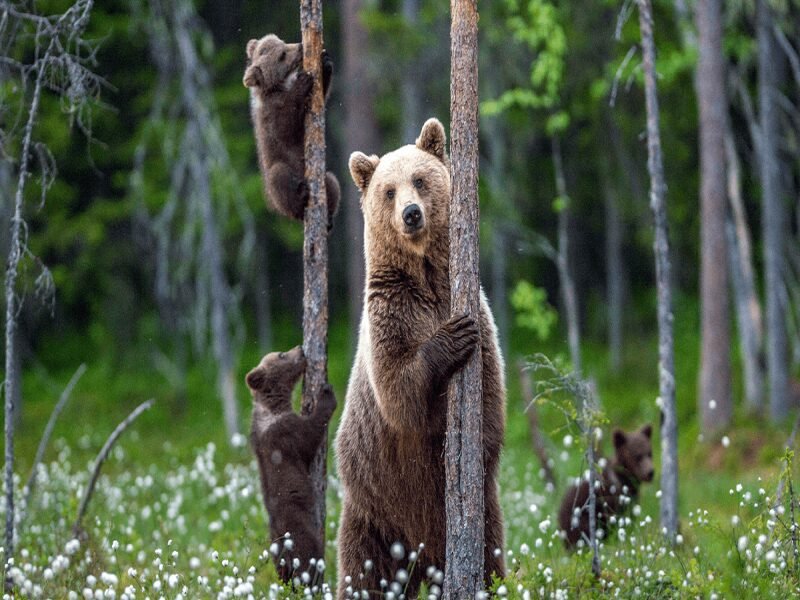Introduction – Responsible Wildlife Encounters
Every living organism and every ecosystem is associated with wildlife in one way or the other. However there remain so many animals that are threatened due to acts including deforestation, hunting, and effects of climate change. When done responsibly, eco and wildlife tourism has valuable benefits for both the continuity of the existence of endangered species and the maintenance of economic balance.
The need for Wildlife Conservation
Wildlife conservation is important in order to maintain the graceful of natural world and the good health of the globe. Habitat animals have a great role to play in ecosystem including pollination, seed distribution and activities of the various predators in the ecosystem. This way we are conserving the many aspects of nature and making sure that generations to come will also be experienced by this world.
This paper focuses on the analysis of the concept known as Responsible Tourism.
Responsible tourism is an excellent way through which the welfare of wildlife conservation can be enhanced. Tourists reduced to accountable tour operators it is possible to encourage the correct lifestyle and help the preservation of endangered species.

Understanding Responsible Wildlife Tourism
What is Responsible Wildlife Tourism?
Responsible wildlife tourism’ is defined as tourism that is careful with wildlife and their natural environments. It means you get to be involved with wildlife in a non-intrusive manner and which at the same time promotes the welfare of the wildlife.
Evaluating the Ethical Consideration to Wildlife Tourism
There are advantages and disadvantages in wildlife tourism to the animals and the animals’ natural environment. responsible tourism can mean that more funds are channeled towards conservation, this can be used to generate income for the locals but Tourism which involves unnecessary and exploitative use of wildlife is not healthy.
• Negative Impacts: Wildlife tourism if done inappropriately causes harm to the animals by destructive interference with animals’ environment, stress and even death of animal species.
• Positive Impacts: Tourism / travelling for Wildlife / natural resource conservation: Tourism can be a tool in wildlife conservation, social and economic development of host communities, and in the promotion of awareness of wildlife conservation needs.
Choosing Responsible Wildlife Tour Operators
Researching Reputable Operators
This means that when considering a wildlife tour it is important to pick a company or agency that respected for their management and treatment of animals and consideration for their environment. Here are some tips for finding responsible tour operators:
• Check for Certifications: Get involved with operators that are accredited globally or by WTTC if you are looking for global operators or by GSTC if you are looking for local operators.
• Read Reviews: This way, the operator will not be simply selected based on what his company offers but based on what other travelers have to say about the operators.
• Contact Conservation Organizations: Do local research to seek advice from other associated conservation nonprofit organizations required to provide data and recommendations of certified tour guides.
Ethical practices guide must be fully comprehended
Wildlife tour operators can only act professionally in line with some guiding ethical principles for handling of wildlife and its natural abode. Some key ethical practices to look for include:
• Minimizing Disturbance: Responsible operators also avoid causing harm in form of feeding or touching wildlife and their natural habitats.
• Supporting Conservation Efforts: Professional carriers involved in the process play a role in the implementation of conservation projects, for example, in the restoration of the living environment or the fight against poaching.
• Educating Visitors: Responsible tour operators are organizations that offer educative experiences whereby the general public can be taught issues to do with wildlife, its converse and the need to safeguard both the animals and their natural environments.

Respecting Wildlife Habitats
Minimizing Disturbance
There are certain considerations that should be out in place when in the wilderness areas as follows; Here are some tips for respecting wildlife and their habitats:
• Stay on Designated Trails: It is advised to stay on trails while hiking as wandering off these trails will cause a disturbance to wildlife and destruction of tender environments.
• Keep Noise Levels Low: Animals become stressed when hiking and their normal activities are influenced by loud noises.
• Avoid Feeding Wildlife: It poses health hazards because fed up animals will depend on people and may fall sick.
• Dispose of Waste Properly: Always throw away waste properly to minimize pollution of environment especially to the wild animals.
Funding Conservation Projects
It is also within your reach to support wildlife conservation efforts by funding local conservation group/association and projects. You might consider financing visits or offering your time, and joining some forms of charity or conservation.
Engaging with Wildlife Ethically
Observing Wildlife from a Distance
Intentional hunting does not have any merits despite of the fact that one gets the experience of facing wildlife. Because of carrying binoculars or spotting scopes, you are able to view animals without making them change their usual pattern of activities.
Endorsement of Ethical Wildlife Refuges
Wildlife sanctuaries are also important in responding to calls and rescuing of sick, injured or abandoned animals. This way, you also can participate in many initiatives carried at the ethical wildlife sanctuaries centers.
No Contact with Animals In Certain Cases
A number of activities are involved in the use of wildlife and they include, touching, giving food or even taking a photo with wildlife. They are stressful and may even lead to injuries on the animal being used in practice.

Conclusion
Safe interaction with wildlife practices are necessary for the societies and conservation of wildlife species. It is only possible to recommend specific tour operators, properly respecting the places inhabited by animals, and interacting with them in a decent manner because we would like to guarantee the successful future for our planet and its valuable species.
Key Takeaways:
- Choose Responsible Tour Operators: Choose your operators considering their policies of animal friendly and against animal slaughtering.
- Respect Wildlife Habitats: Perturb the social system as little as possible and be amenable to the preservation of nature.
- Engage with Wildlife Ethically: Do not capture the animals even for photography and do not for any other economic profit.
- Support Conservation Initiatives: Support Wildlife conservation by donating or through volunteerism or being involved in the conservation activities.
Call to Action:
Responsible watching and interacting with wildlife means that one has an opportunity to contribute to efforts of conserving endangered species and our planet’s natural resource base. Inspire others and discuss what you would like to see and do at your next conservation holiday experience and motivate other to choose eco friendly wildlife vacations.




